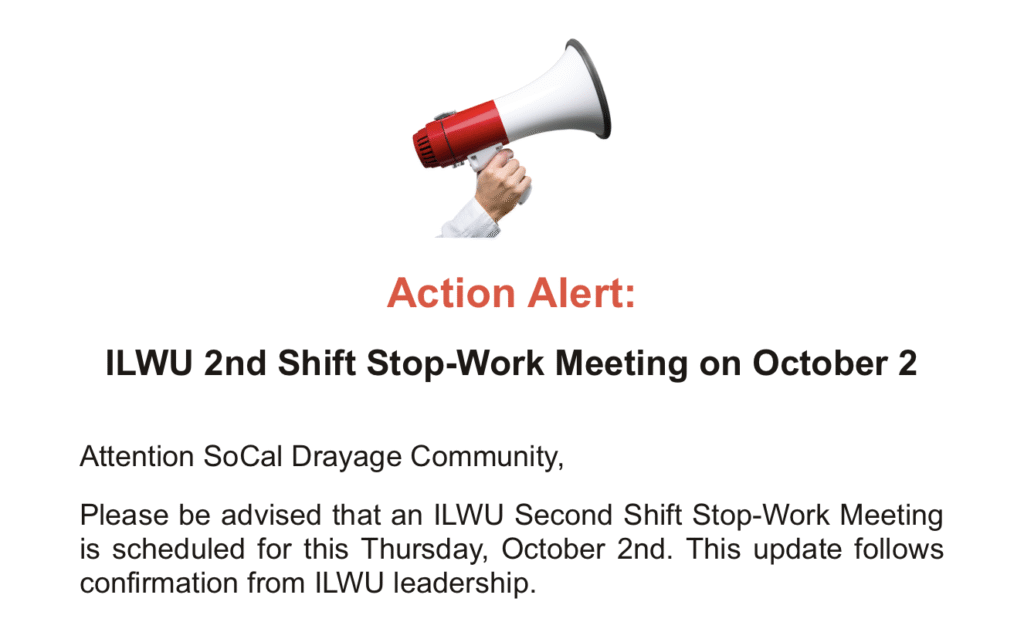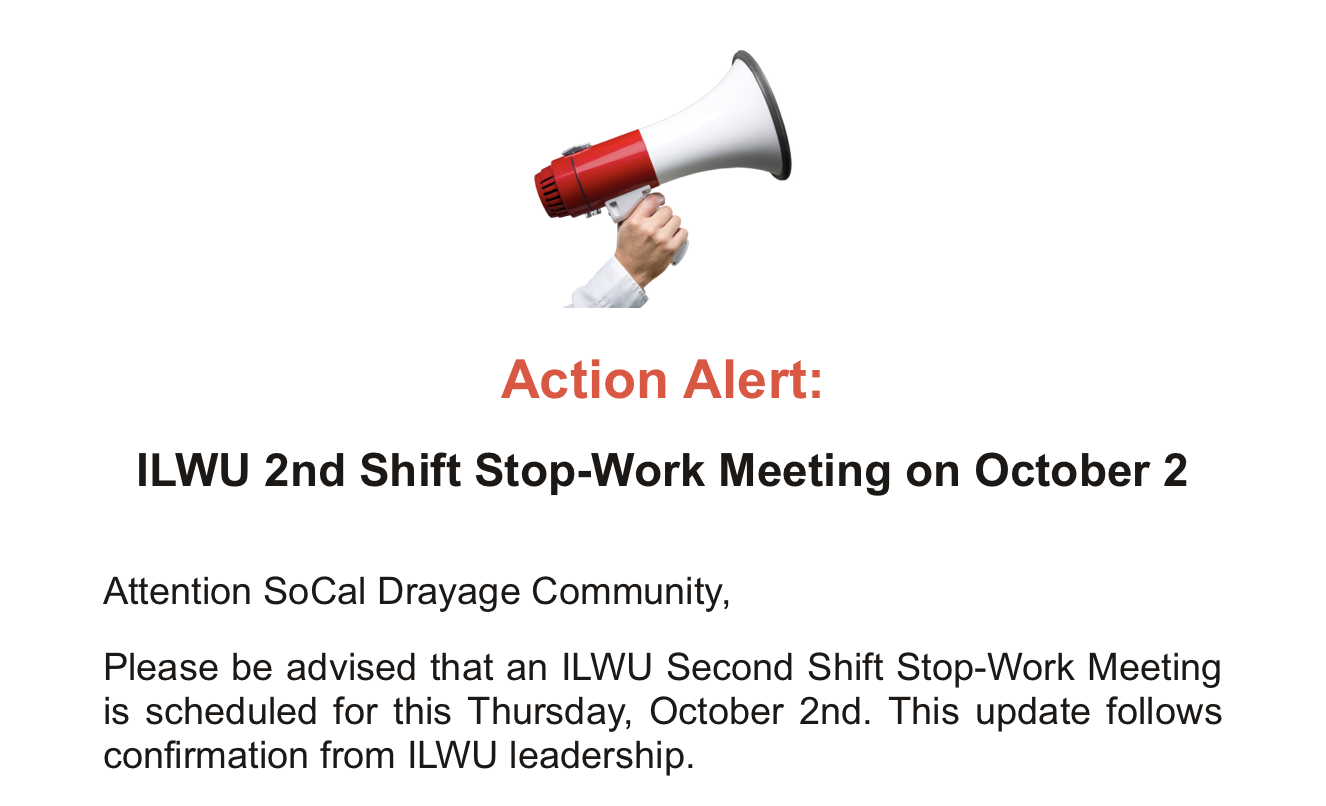The first Thursday of every month, the ports close the 2nd shift for what is known as a “stop work” meeting. These meetings allow the International Longshore and Warehouse Union to discuss union matters, contract proposals, and other important topics. Truckers are notified in advance so they can plan accordingly.

How does this affect operations?
Because of the missed shift, trucking companies often need to reschedule empty returns and import appointments. This can lead to additional storage and chassis fees. It also creates competition for limited appointment availability, which results in congestion at the terminals and longer wait times to pick up or ingate containers.
What can we do to avoid extra fees?
The best approach is to plan around the missed shift. For example, if a shipment becomes available during a stop work meeting week, it’s best to schedule and deliver a shipment before Thursday. Doing so provides enough time to deliver and return the container without incurring extra fees. Additionally, if a container has an LFD past the weekend, it is best to schedule after the weekend so the container does not sit.
In conclusion, always work with your trucker to find the best delivery date and time if you anticipate a stop work week. This will save you time and money as those extra fees can cost you a couple hundred dollars.

